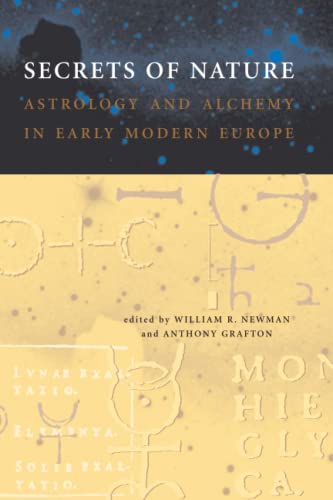Book Review: William R. Newman and Anthony Grafton (eds.): Secrets of Nature: Astrology and Alchemy in Early Modern EuropeTo the modern mind, uttering the word "alchemy" conjures images of a remote past filled with charlatans claiming to turn base metals into gold through their craft. To those not accustomed to examining the present in more than its immediate context it may, therefore, be shocking to realize that it was only toward the beginning of the eighteenth century that there emerged a marked tendency to sequester alchemy from the new science of chemistry and, although the divorce is now irredeemable, alchemy retains its own place in the annals of human thought. Notwithstanding its centuries'-old history, modern historians have little time for alchemy--those who do spend a paragraph or two in their accounts of the sciences treat it as no more than a precursor to modern chemistry. This view led people to conclude, as Titus Burckhardt notes in his magisterial Alchemy, "that an insatiable desire to make gold had persistently caused men to believe in a heap of fantastic prescriptions, which, rightly seen, were nothing more than a popular and superstitious application of natural philosophy of the ancients".
|
Muzaffar Iqbal
|
|
© Center for Islamic Sciences. All Rights Reserved.
Designed and Developed by Crescent Marketing Solutions |


